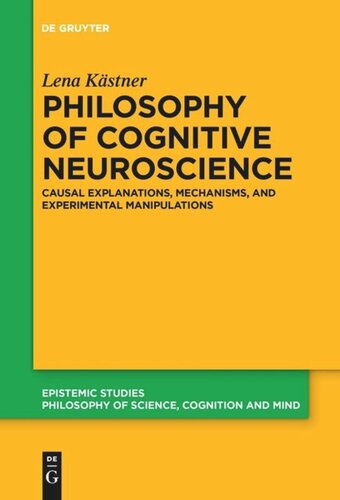

Most ebook files are in PDF format, so you can easily read them using various software such as Foxit Reader or directly on the Google Chrome browser.
Some ebook files are released by publishers in other formats such as .awz, .mobi, .epub, .fb2, etc. You may need to install specific software to read these formats on mobile/PC, such as Calibre.
Please read the tutorial at this link: https://ebookbell.com/faq
We offer FREE conversion to the popular formats you request; however, this may take some time. Therefore, right after payment, please email us, and we will try to provide the service as quickly as possible.
For some exceptional file formats or broken links (if any), please refrain from opening any disputes. Instead, email us first, and we will try to assist within a maximum of 6 hours.
EbookBell Team

5.0
28 reviewsHow do cognitive neuroscientists explain phenomena like memory or language processing? This book examines the different kinds of experiments and manipulative research strategies involved in understanding and eventually explaining such phenomena. Against this background, it evaluates contemporary accounts of scientific explanation, specifically the mechanistic and interventionist accounts, and finds them to be crucially incomplete. Besides, mechanisms and interventions cannot actually be combined in the way usually done in the literature. This book offers solutions to both these problems based on insights from experimental practice. It defends a new reading of the interventionist account, highlights the importance of non-interventionist studies for scientific inquiry, and supplies a taxonomy of experiments that makes it easy to see how the gaps in contemporary accounts of scientific explanation can be filled. The book concludes that a truly empirically adequate philosophy of science must take into account a much wider range of experimental research than has been done to date. With the taxonomy provided, this book serves a stepping-stone leading into a new era of philosophy of science—for cognitive neuroscience and beyond.